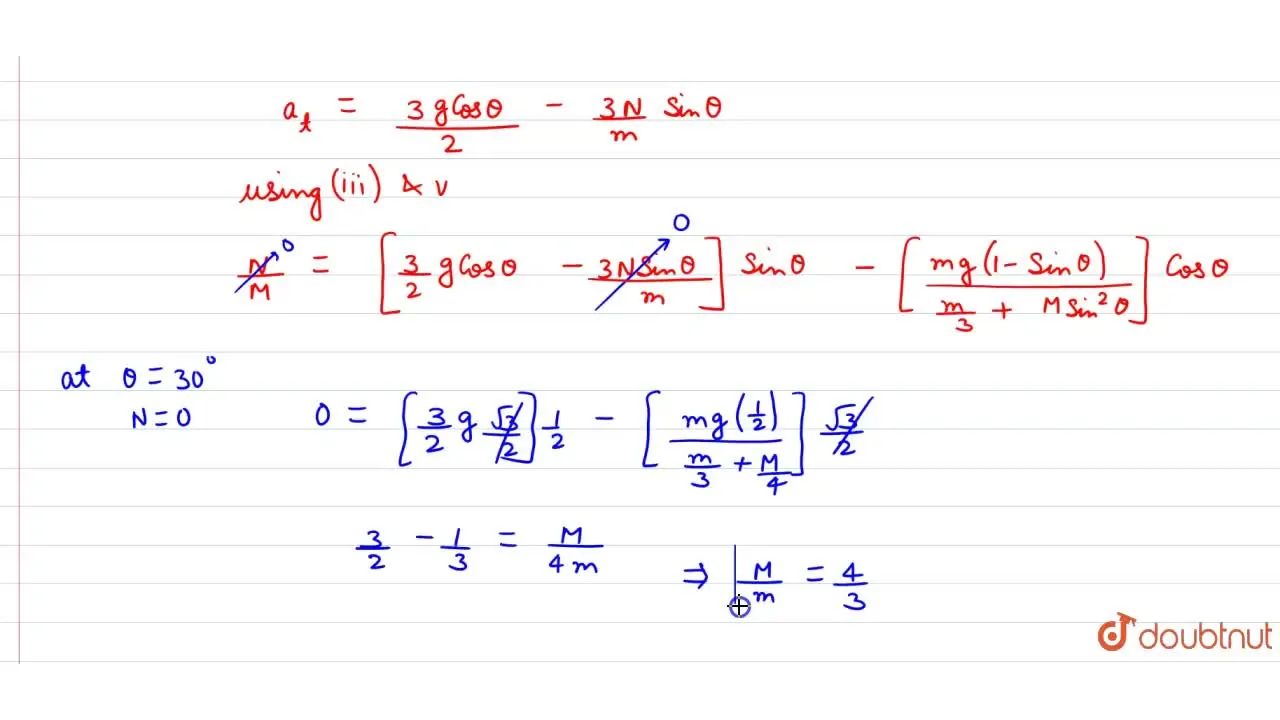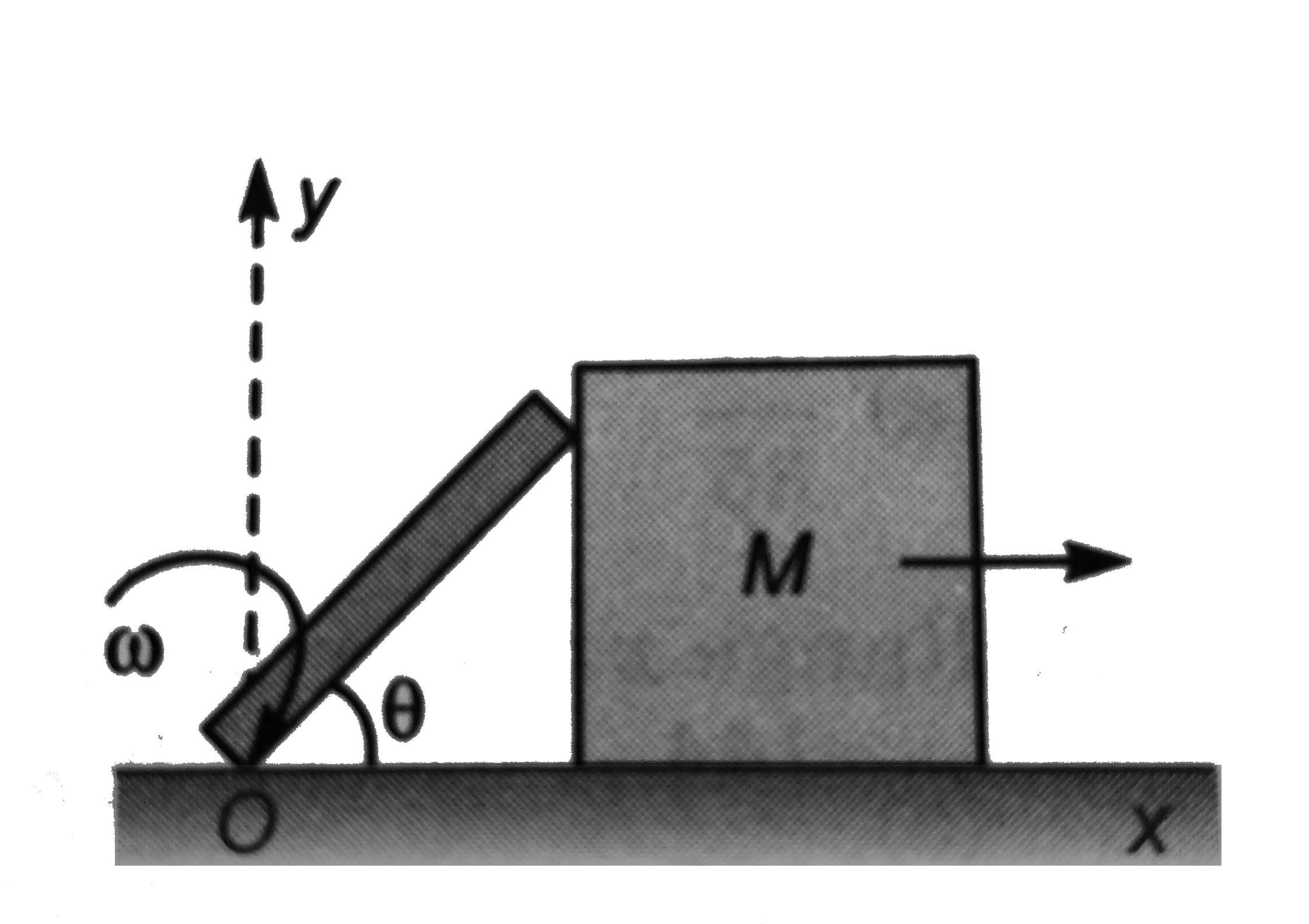
A uniform rod of mass m and length l is applied pivoted at point O. The rod is initially in vertical position and touching a block of mass M which is at rest on a horizontal surface. The rod is given a slight jerk and it starts rotating about point O this causes the block to move forward as shown The rod loses contact with the block at θ=30∘ all surfaces are smooth now answer the following questions.
Q. The value of ratio M/m is
a) 2:3
b) 3:2
c) 4:3
d) 3:4
(a)2:3
(b)3:2
(c)4:3
(d)3:4

At angle θ shown in figure.
decrease in potential energy of rod
= increase in rotational kinetic energy of rod
+ translational kinetic energy of blocK. v=vpsinθ=(lω)sinθ
∴mg(l2−l2sinθ)=12(ml23ω2)
+12M(ωlsinθ)
From here we get
lω2=an=mg(1−sinθ)m/3+Msin2θ)
at=lα=l(τI)0l⎡⎢⎣mg(l)2cosθ−Nlsinθml2/3⎤⎥⎦
=32gcosθ−3Nsinθm .(ii)
N=Ma=M[atsinθ−ancosθ] ..(iii)
Now putting values of at and an from eqs. (i) and (ii) in eqs (iii) and then putting N=0 and θ=30∘ in the equation we get,
Mm=43
Related Playlists
- BOOK - DC PANDEY ENGLISHCHAPTER - ROTATIONAL MECHANICSEXERCISE - Level 21videos
ROTATIONAL MECHANICS
- BOOK - DC PANDEY ENGLISHCHAPTER - ROTATIONAL MECHANICSEXERCISE - Level 2 Subjective36videos
ROTATIONAL MECHANICS
- BOOK - DC PANDEY ENGLISHCHAPTER - ROTATIONAL MECHANICSEXERCISE - Level 2 Single Correct26videos
ROTATIONAL MECHANICS
- BOOK - DC PANDEY ENGLISHCHAPTER - ROTATIONEXERCISE - (C) Chapter Exercises39videos
ROTATION
- BOOK - DC PANDEY ENGLISHCHAPTER - ROTATIONAL MOTIONEXERCISE - Integer Type Questions17videos
ROTATIONAL MOTION
Similar Questions
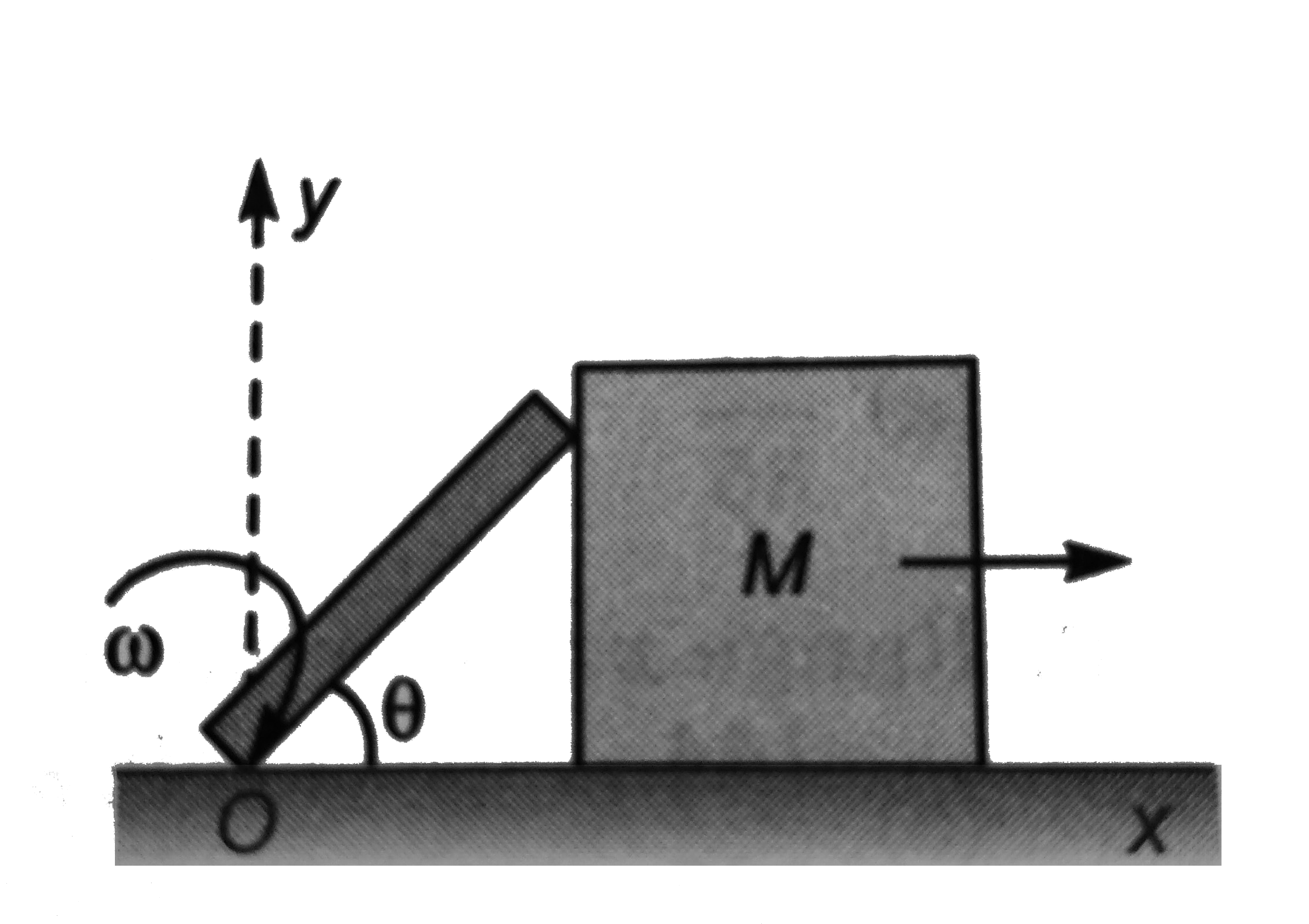
A uniform rod of mass m and length l is applied pivoted at point O. The rod is initially in vertical position and touching a block of mass M which is at rest on a horizontal surface. The rod is given a slight jerk and it starts rotating about point O this causes the block to move forward as shown The rod loses contact with the block at θ=30∘ all surfaces are smooth now answer the following questions.
Q. The velocity of block when the rod loses contact with the block isView Solution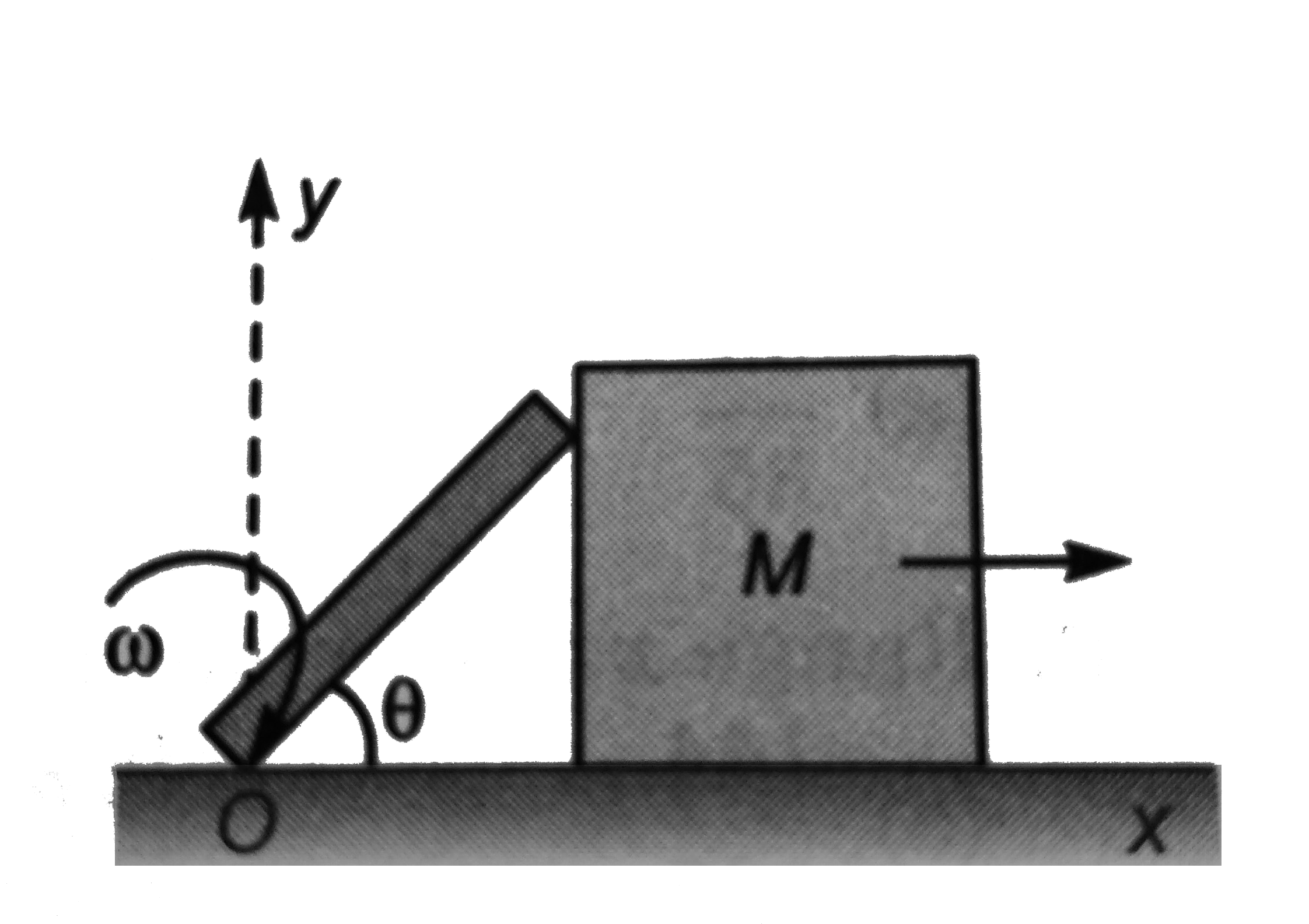
A uniform rod of mass m and length l is applied pivoted at point O. The rod is initially in vertical position and touching a block of mass M which is at rest on a horizontal surface. The rod is given a slight jerk and it starts rotating about point O this causes the block to move forward as shown The rod loses contact with the block at θ=30∘ all surfaces are smooth now answer the following questions.
Q. The acceleration of centre of mass of rod, when it loses contact with the block isView Solution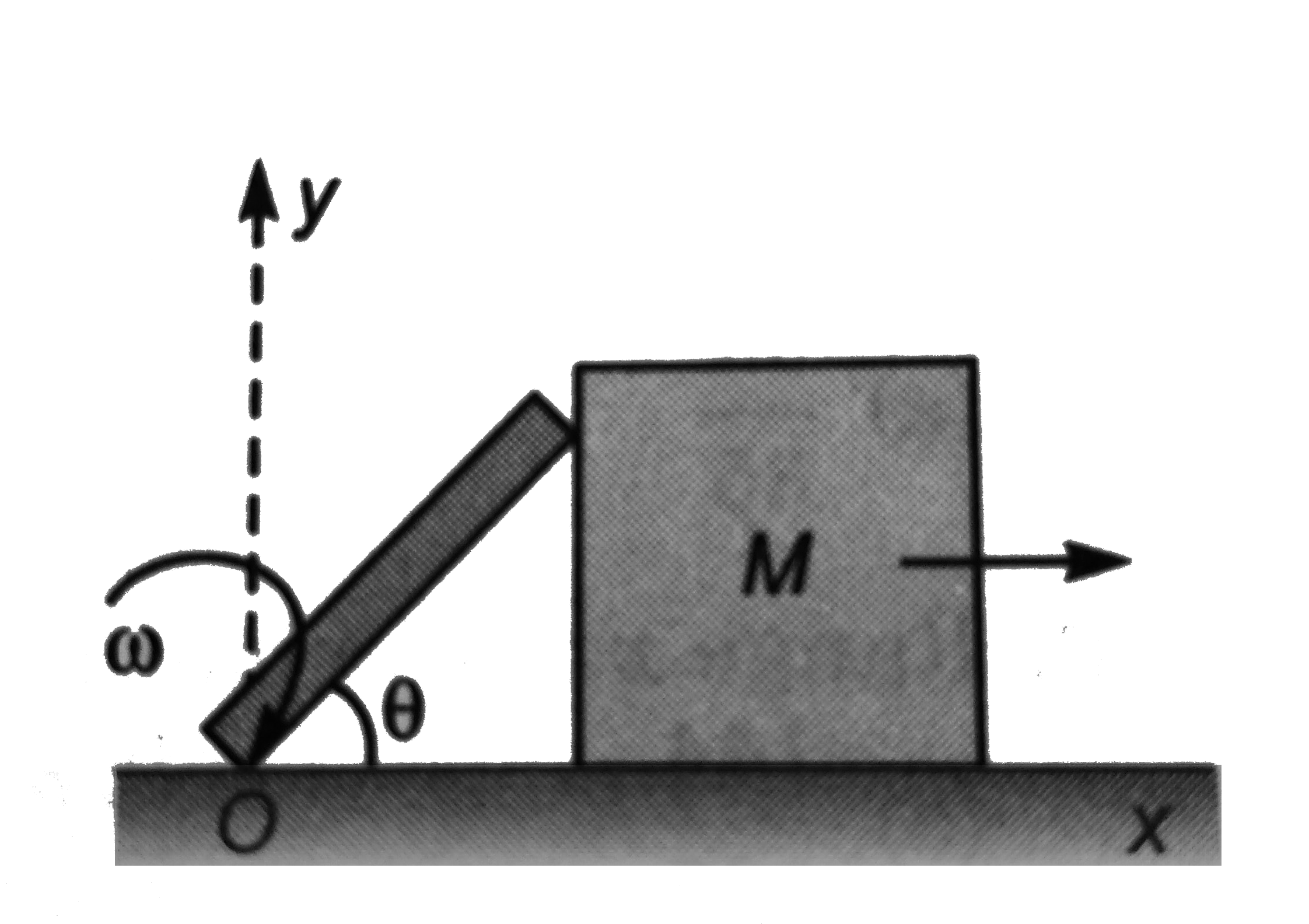
A uniform rod of mass m and length l is applied pivoted at point O. The rod is initially in vertical position and touching a block of mass M which is at rest on a horizontal surface. The rod is given a slight jerk and it starts rotating about point O this causes the block to move forward as shown The rod loses contact with the block at θ=30∘ all surfaces are smooth now answer the following questions.
Q. The hinge reaction at O on the rod when it loses contact with the block isView SolutionA uniform rod of mass 20 Kg and length 1.6 m is piovted at its end and swings freely in the vertical plane. Angular acceleration of the rod just after the rod is relased from rest in the horizontal position is
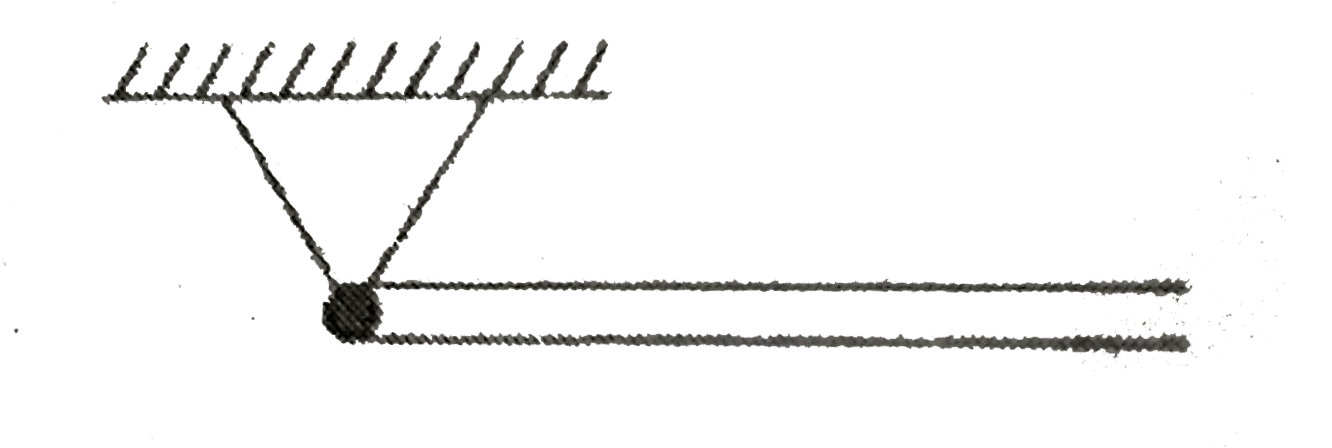 View Solution
View SolutionA rigid rod of mass m & length l is pivoted at one of its ends. If it is released from its horizontal position, find the speed of the centre of mass of the rod when it becomes vertical.
View SolutionA uniform rod of length l and mass m is free to rotate in a vertical plane about A as shown in Fig. The rod initially in horizontal position is released. The initial angular acceleration of the rod is
 View Solution
View SolutionA uniform rod of mass m and length L is free to rotate in the vertical plane about a horizontal axis passing through its end. The rod initially in horizontal position is released. The initial angular acceleration of the rod is:
 View Solution
View SolutionA uniform rod of mass m and length l is lying on a smooth table. An impulse J acts on the rod momentarily as shown in figure at point R. Just after that:
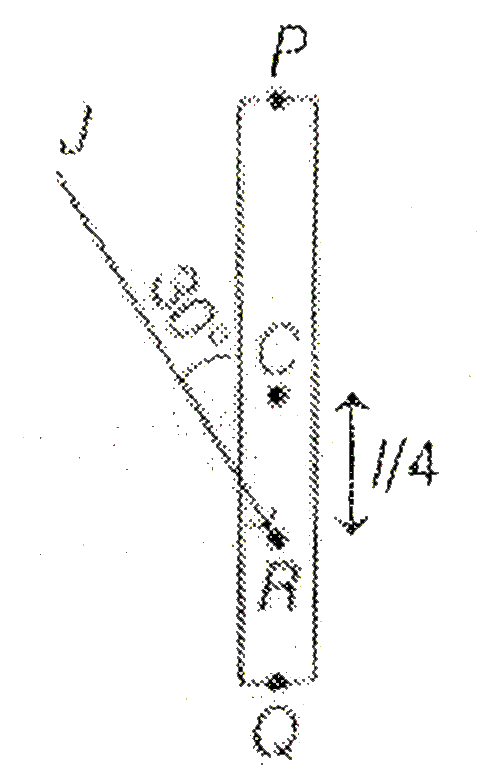
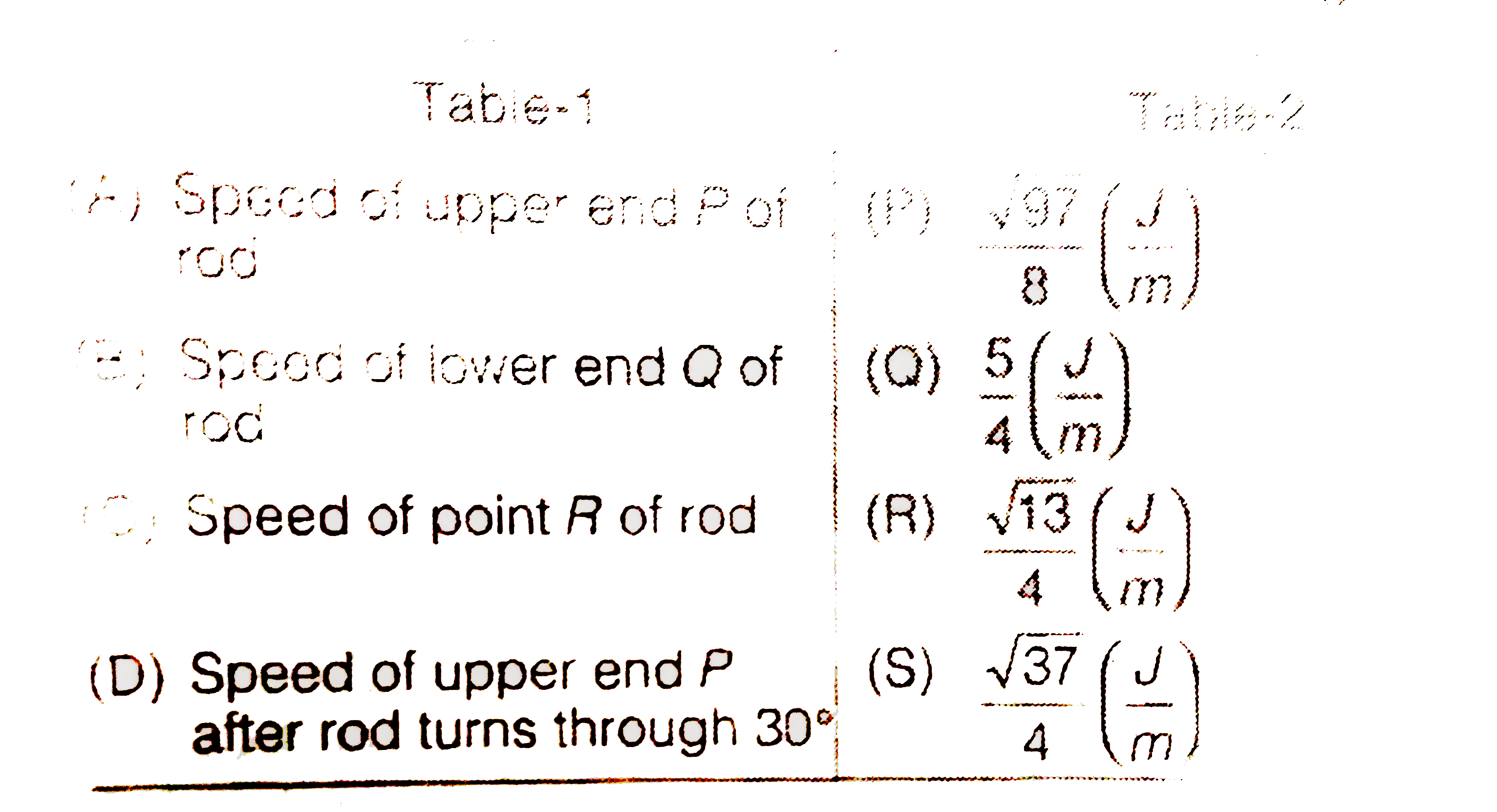 View Solution
View SolutionA rod of mass m and length L is pivoted at a point O and kept in horizontal position as shown in figure. Now it is released from this position so that it can rotates freely about the point O in downward direction. When it becomes vertical
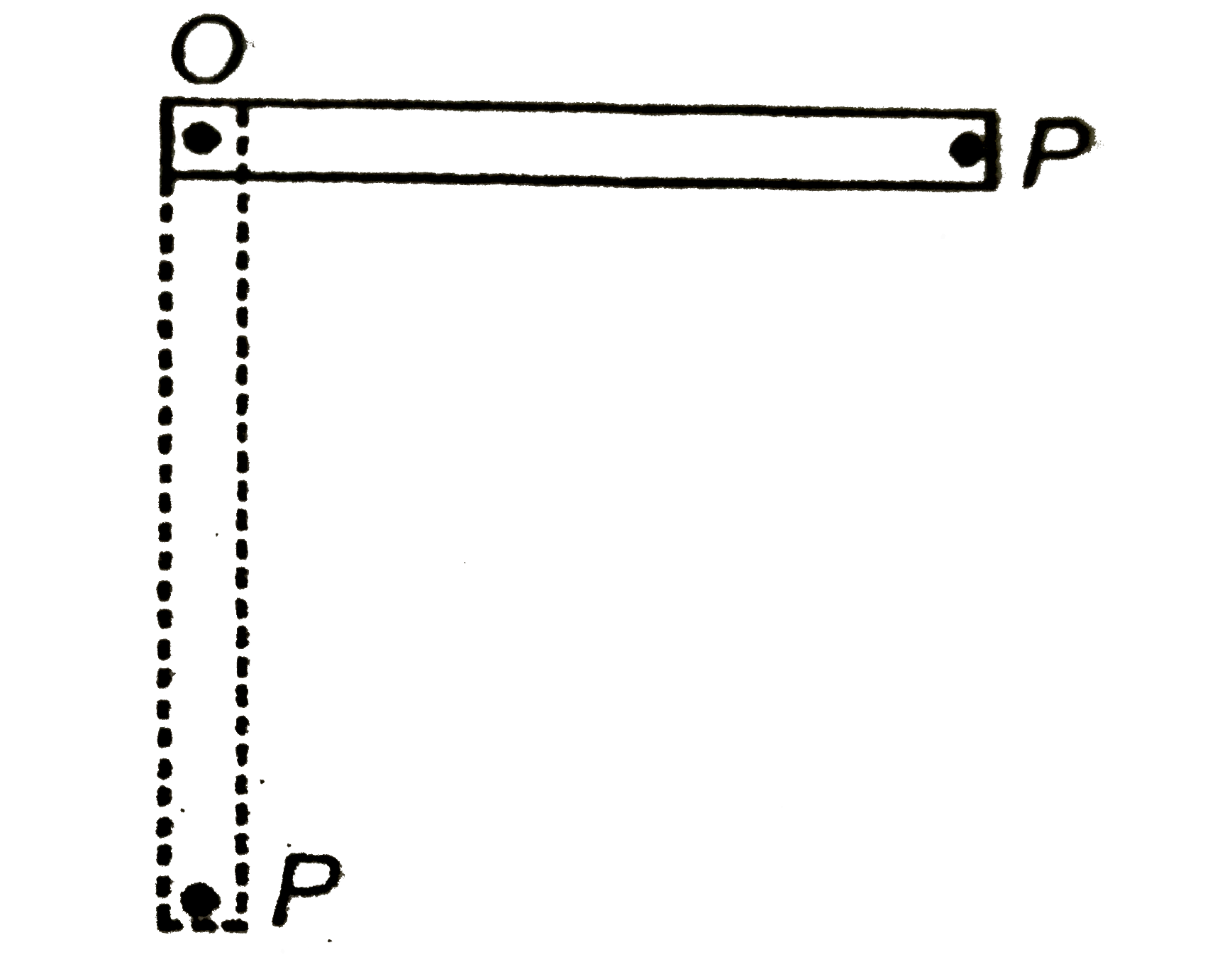 View Solution
View SolutionA uniform straight rod is placed in vertical position on a smooth horizontal surface and released. As the rod is in motion, the centre of mass moves
View Solution

